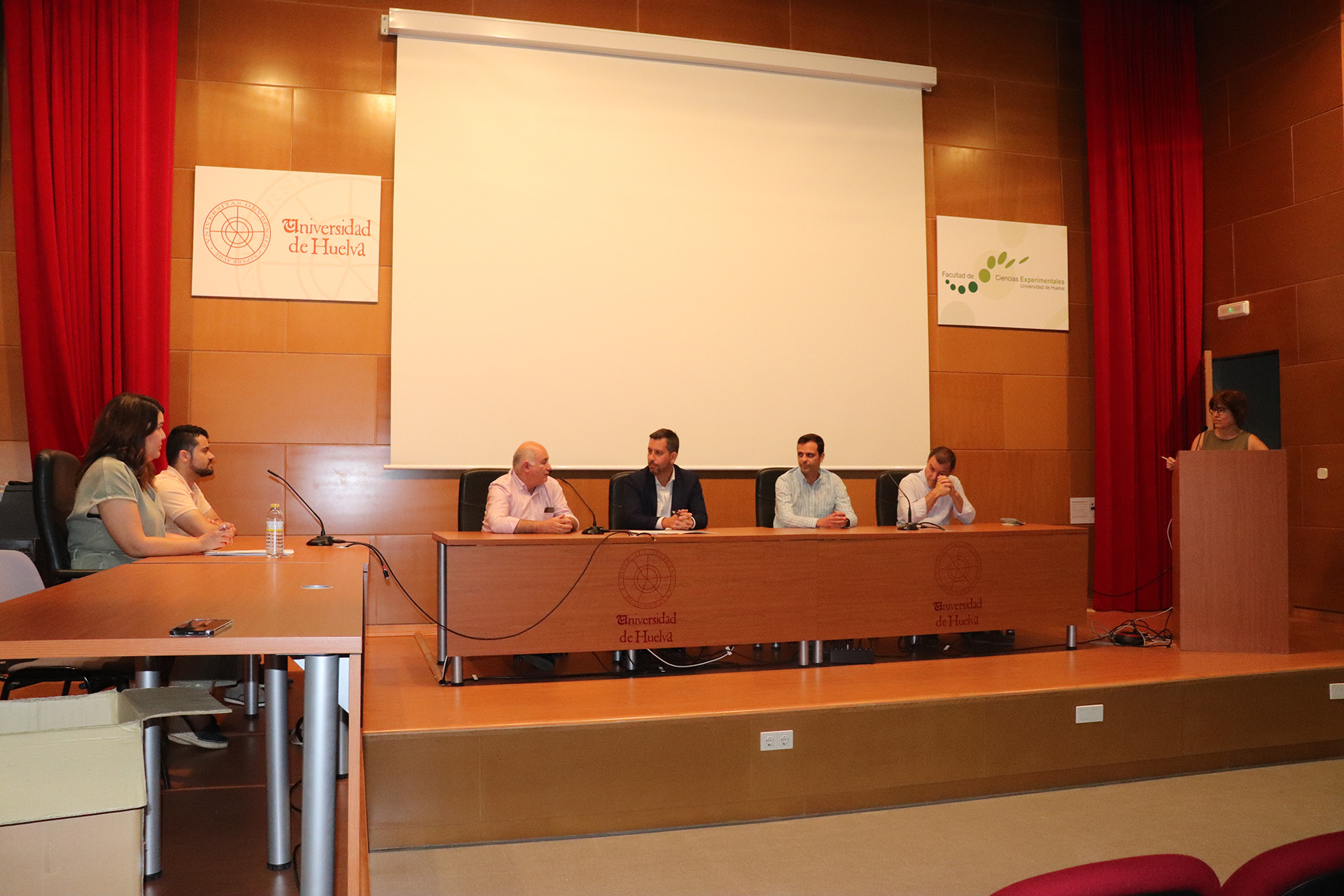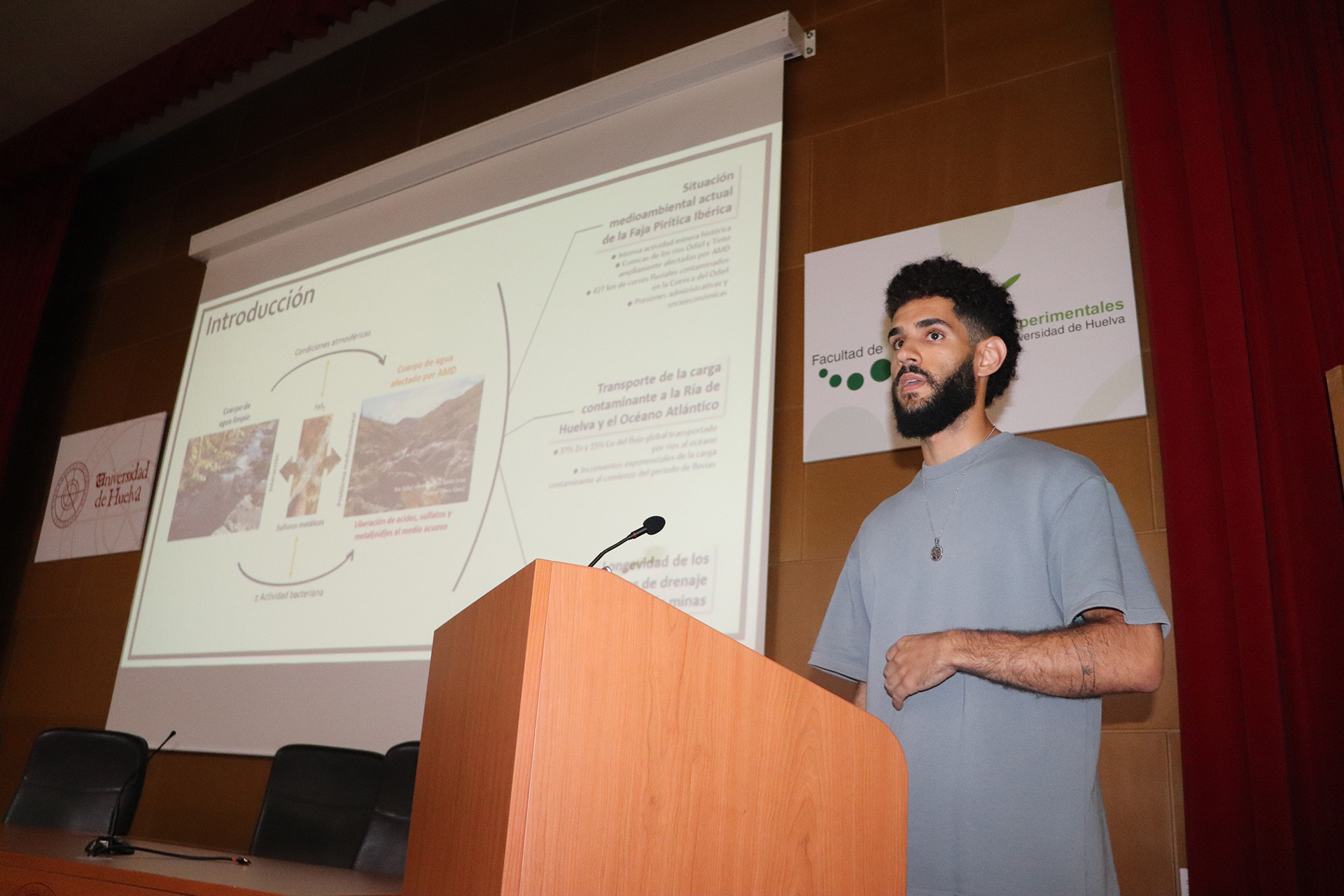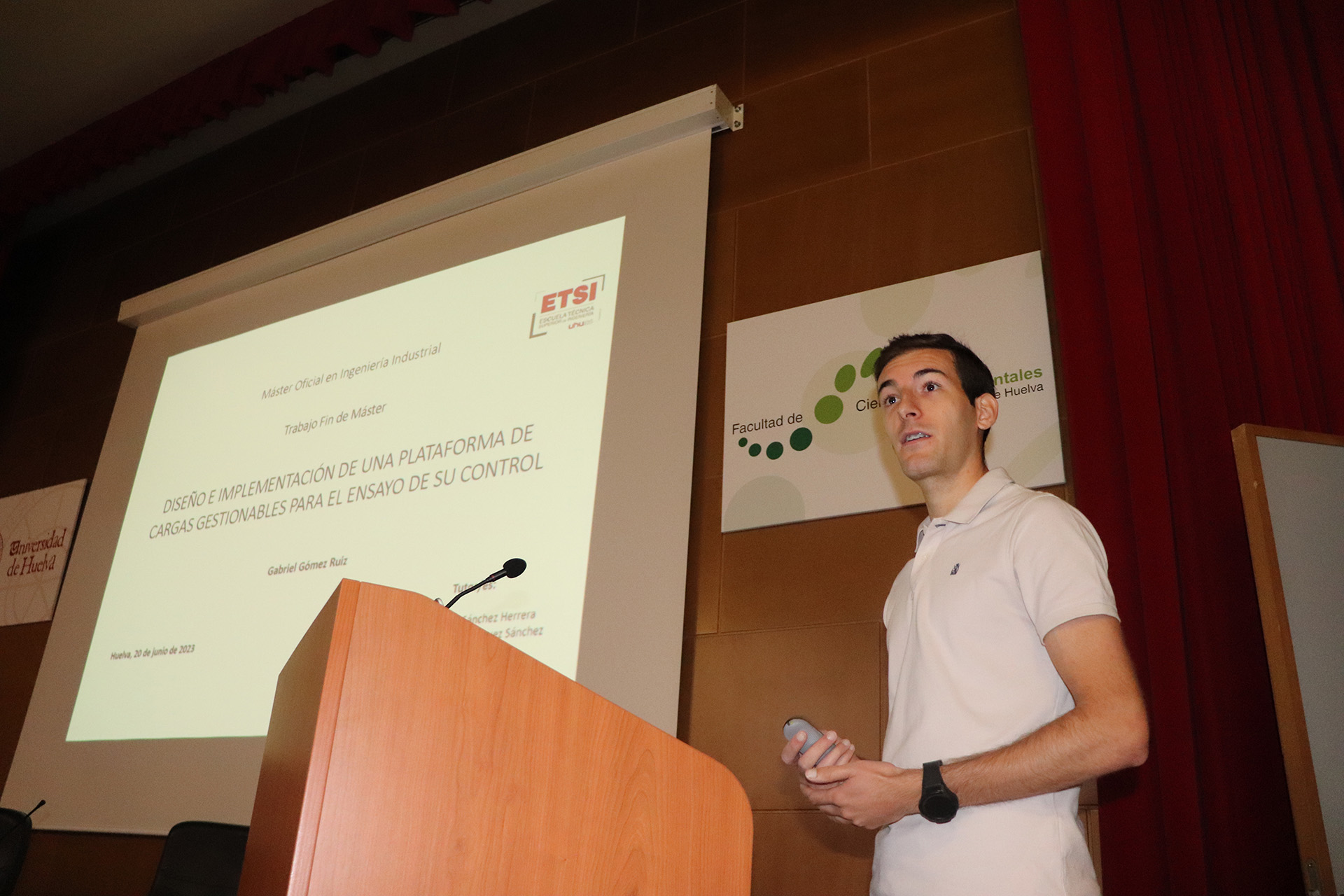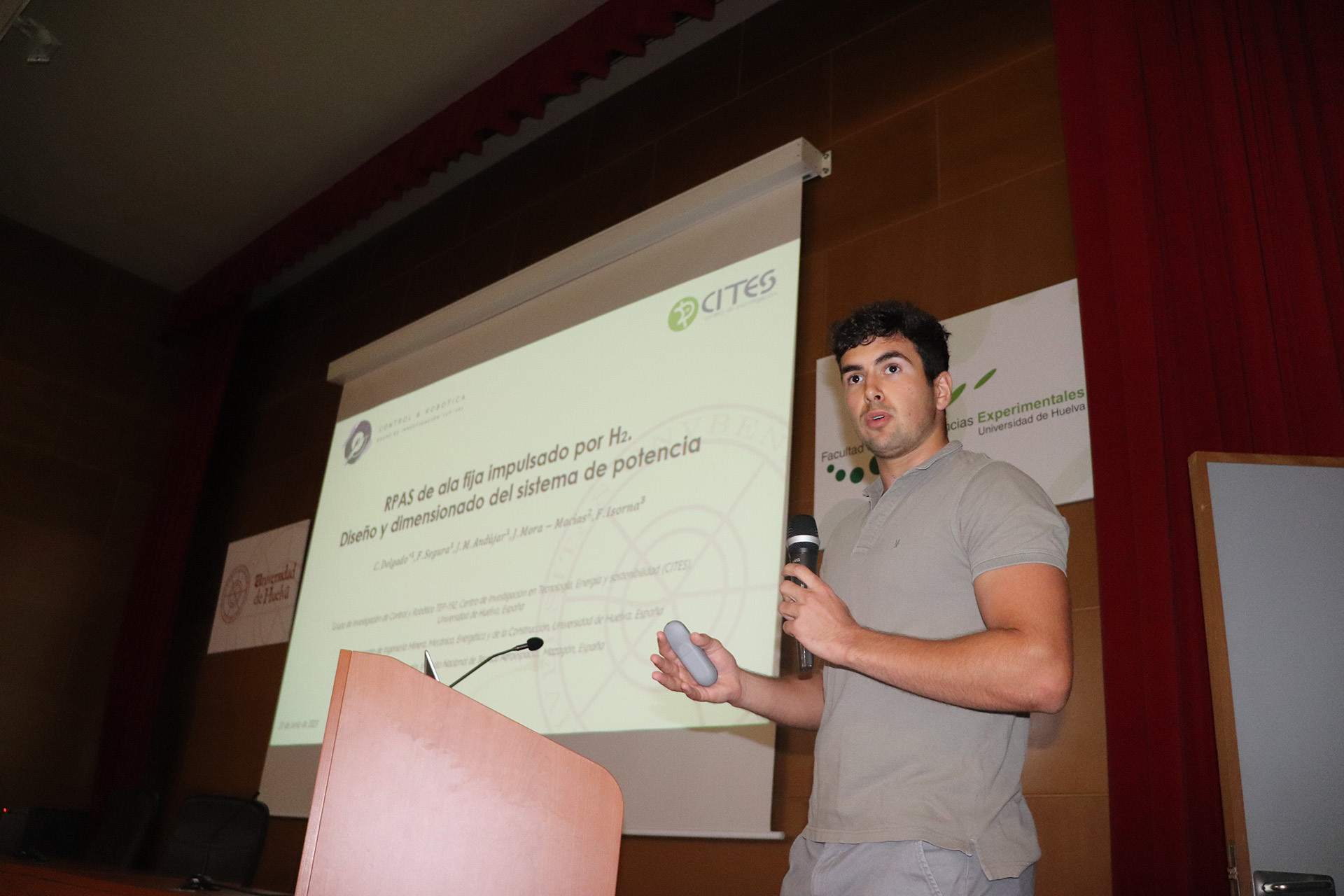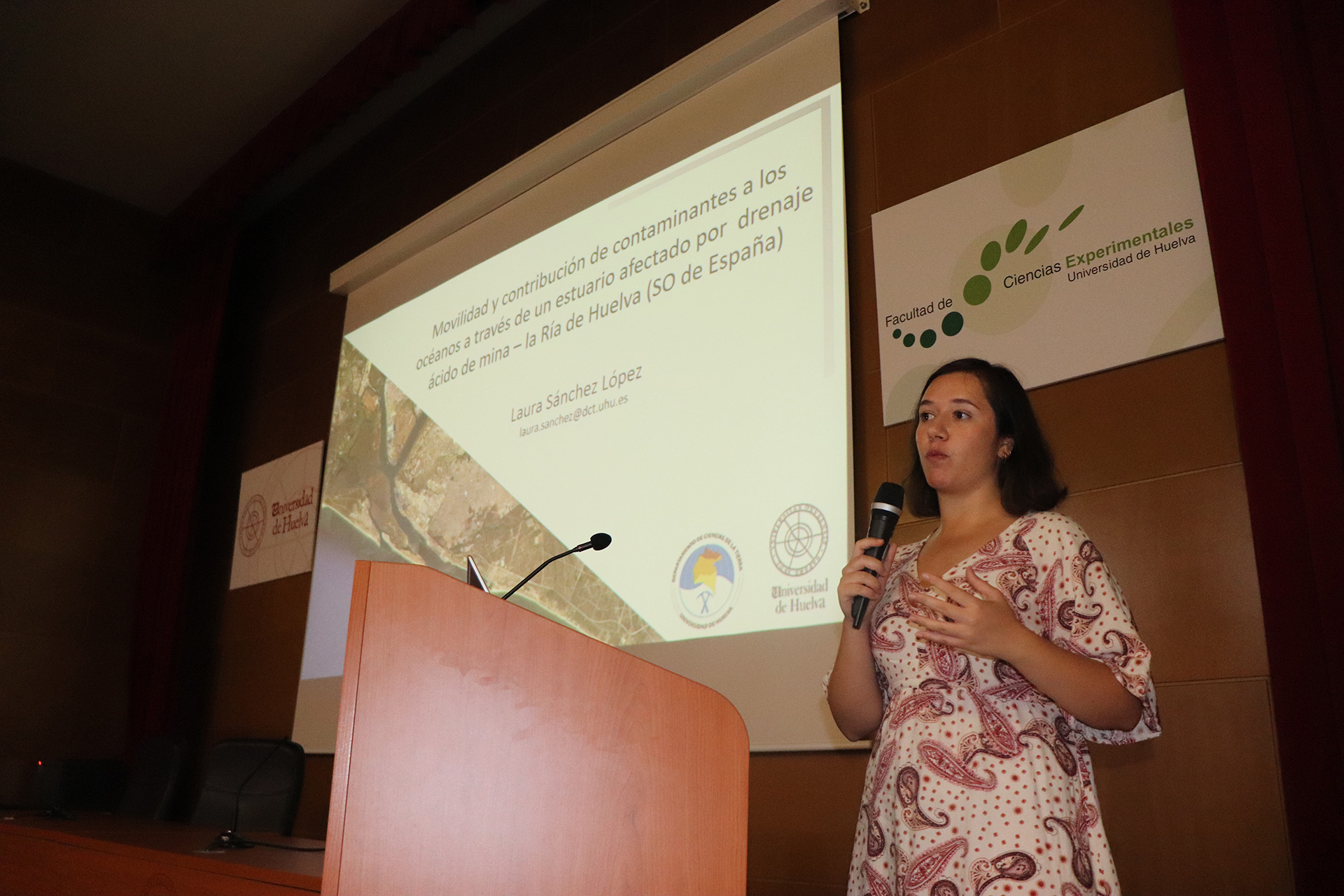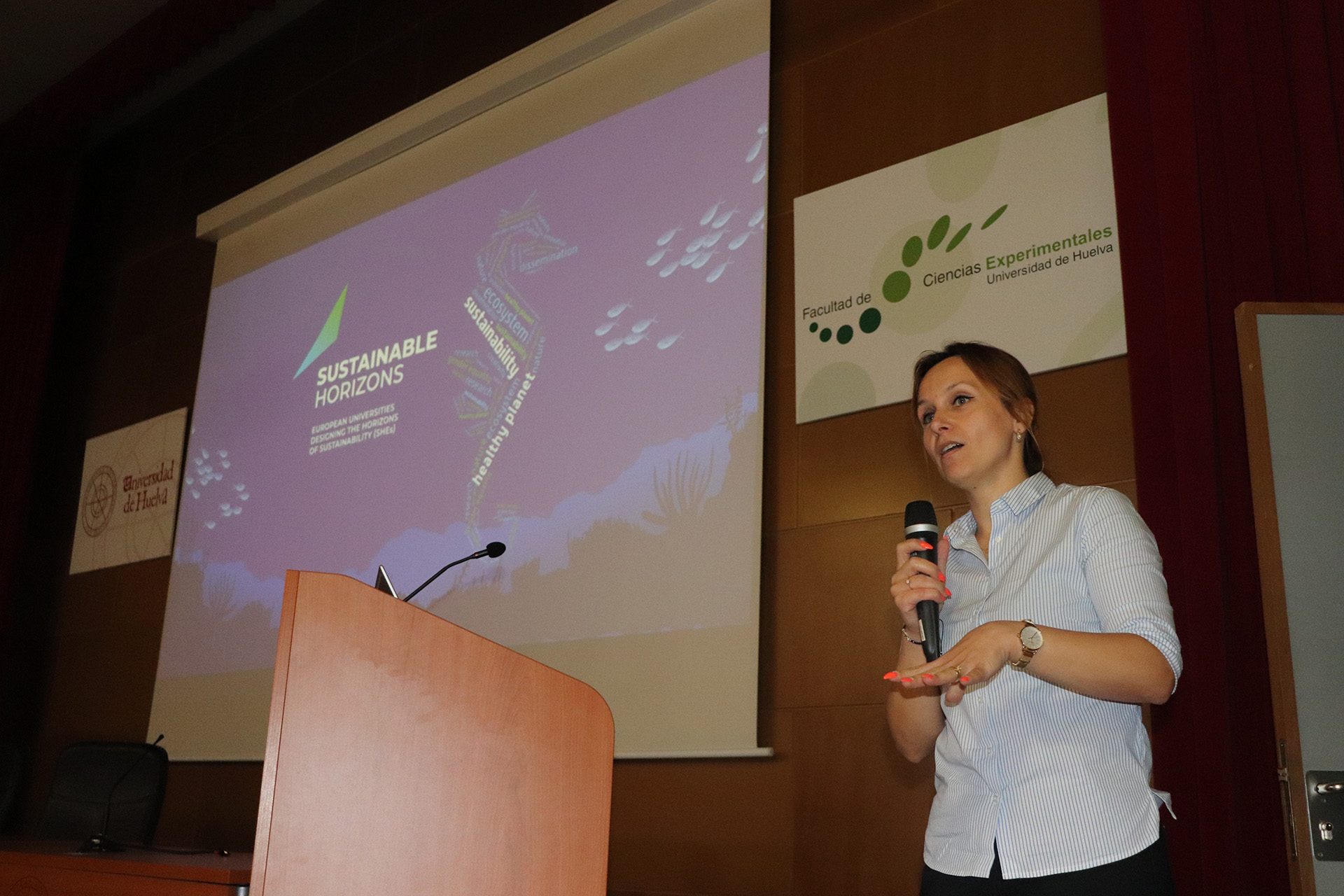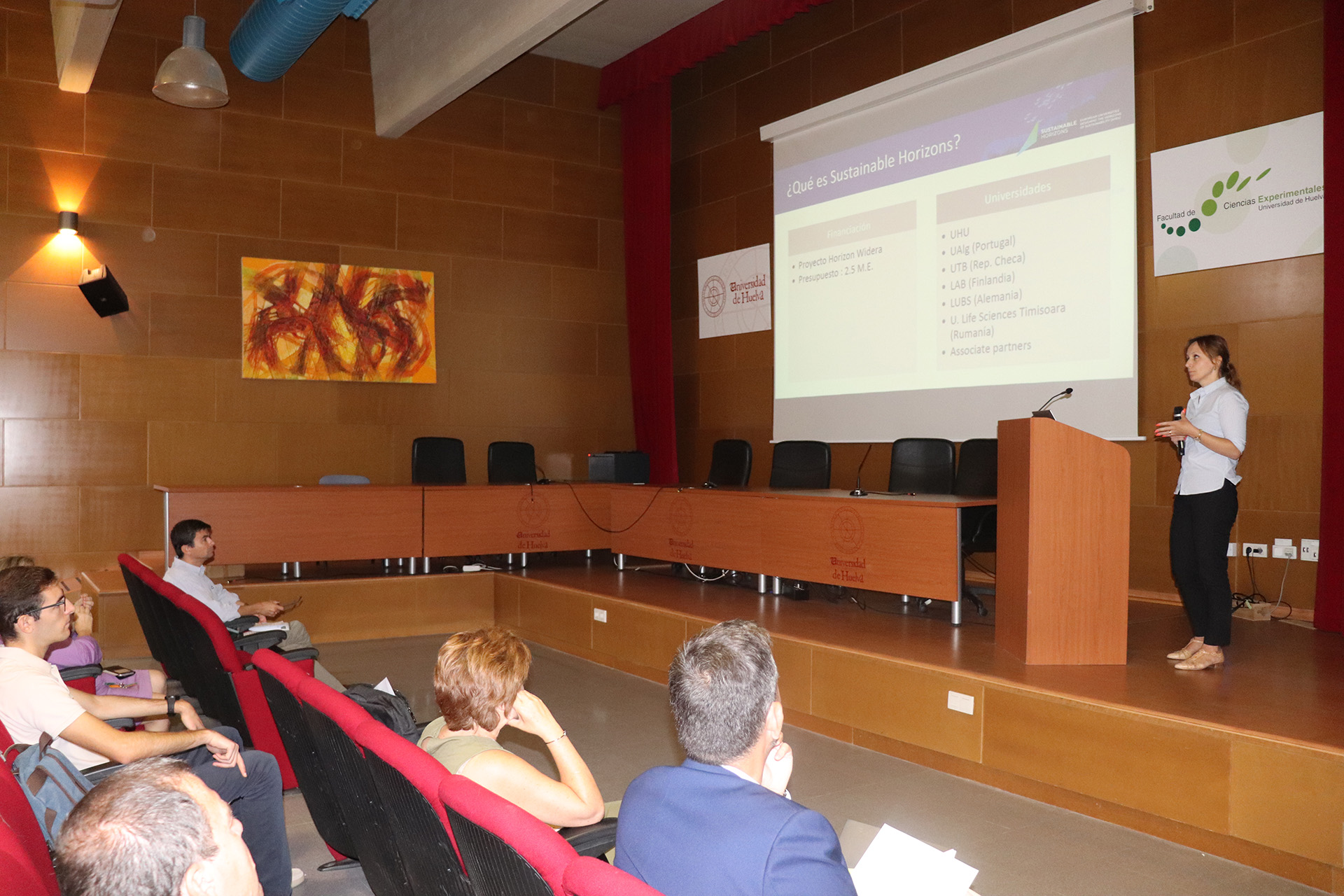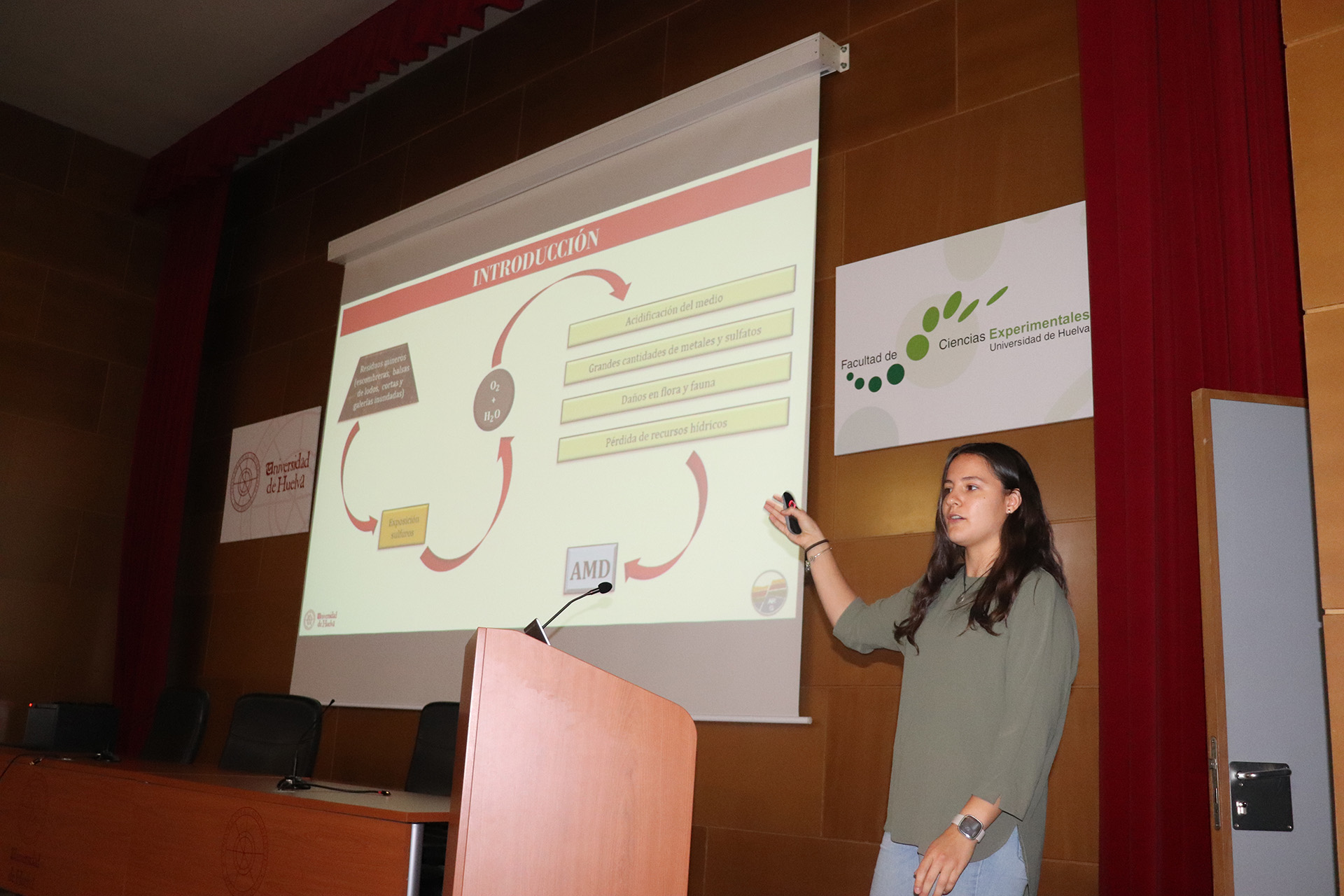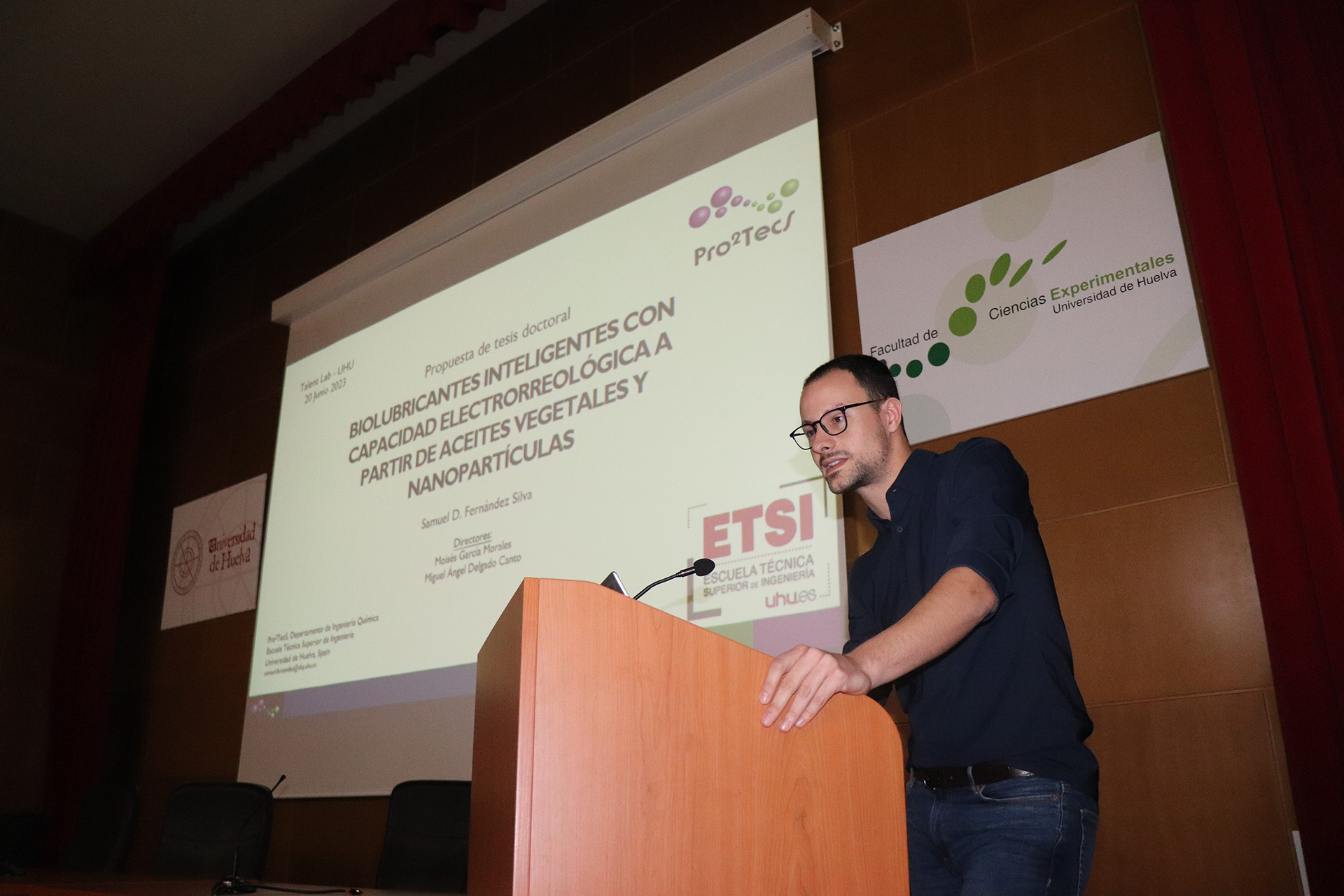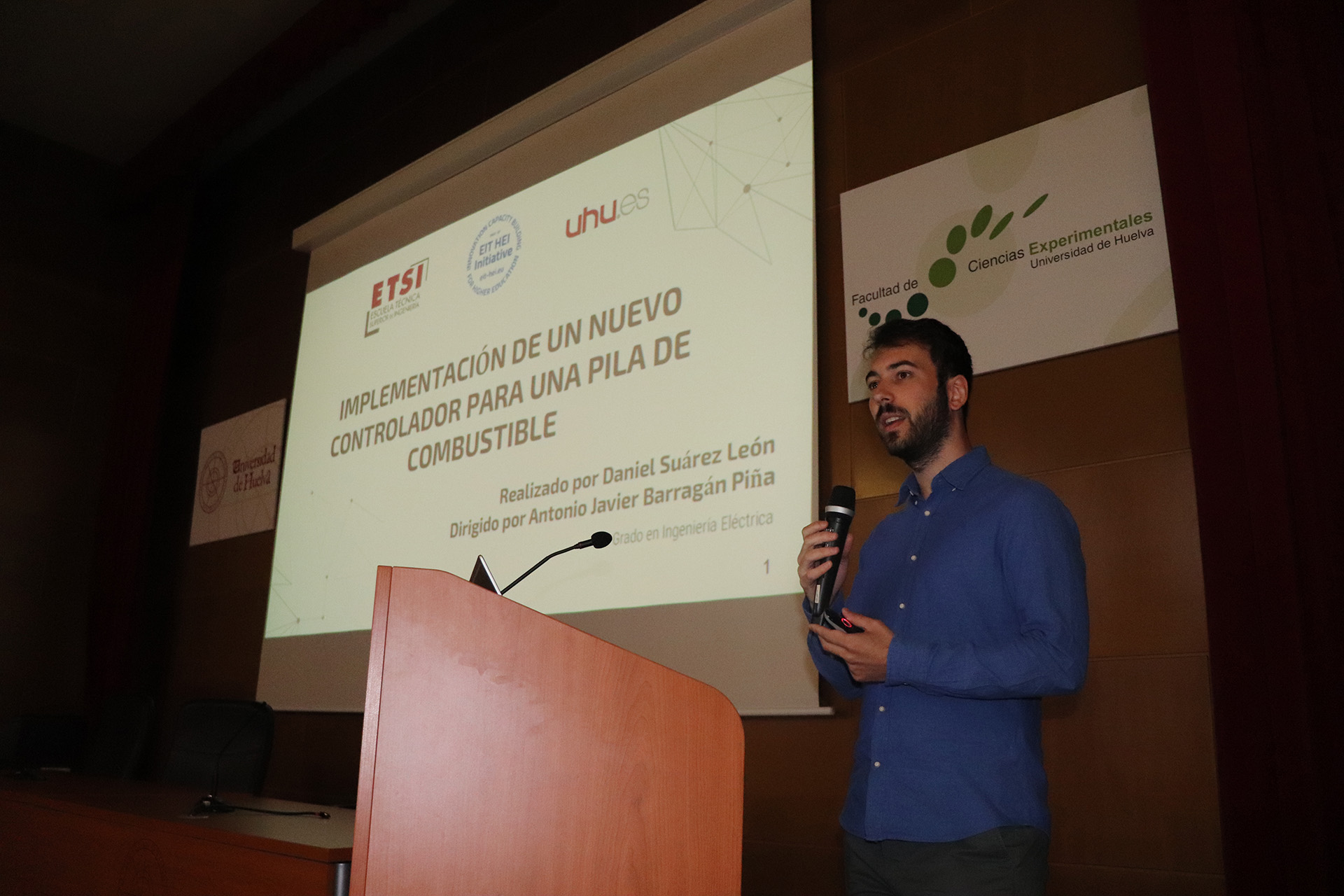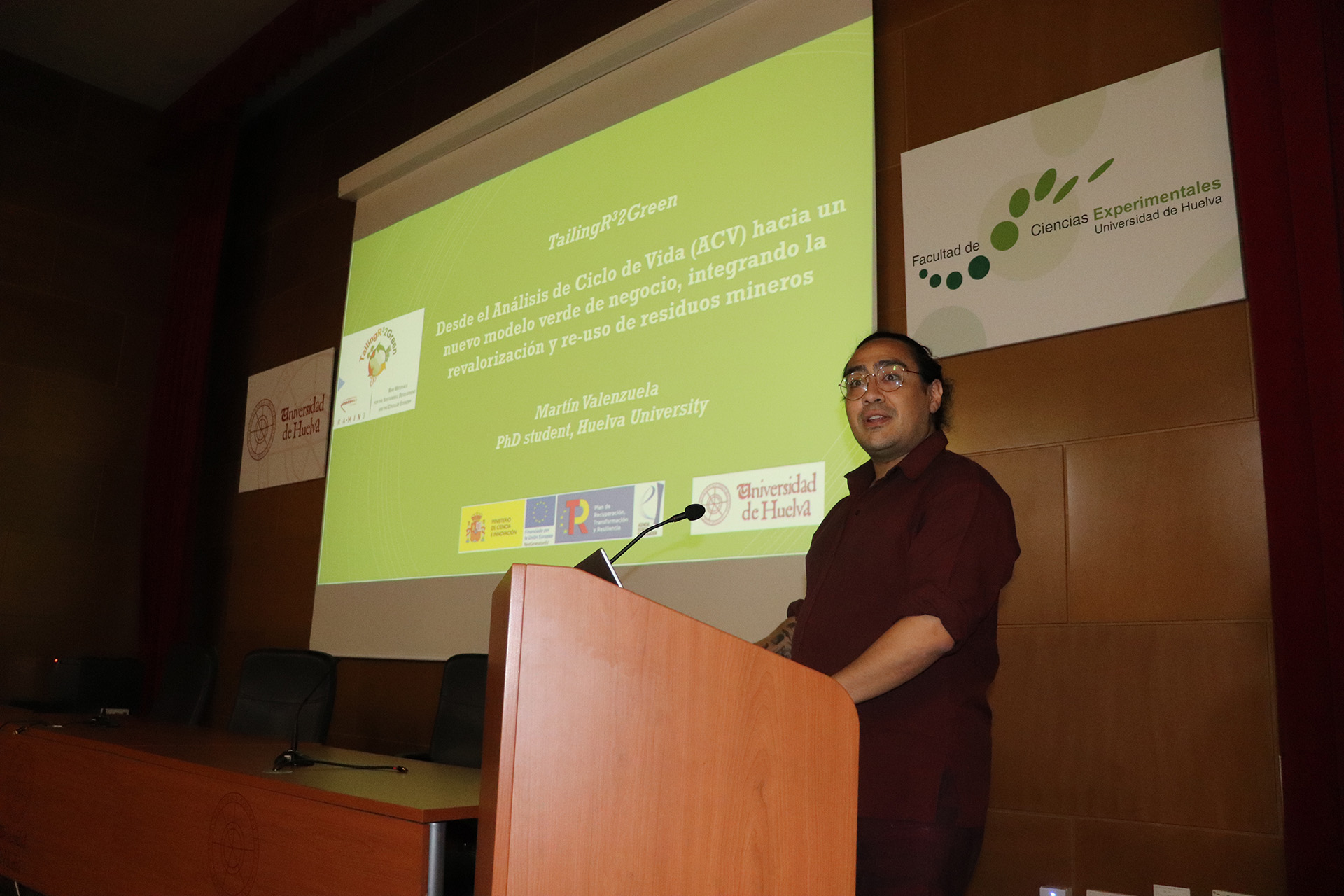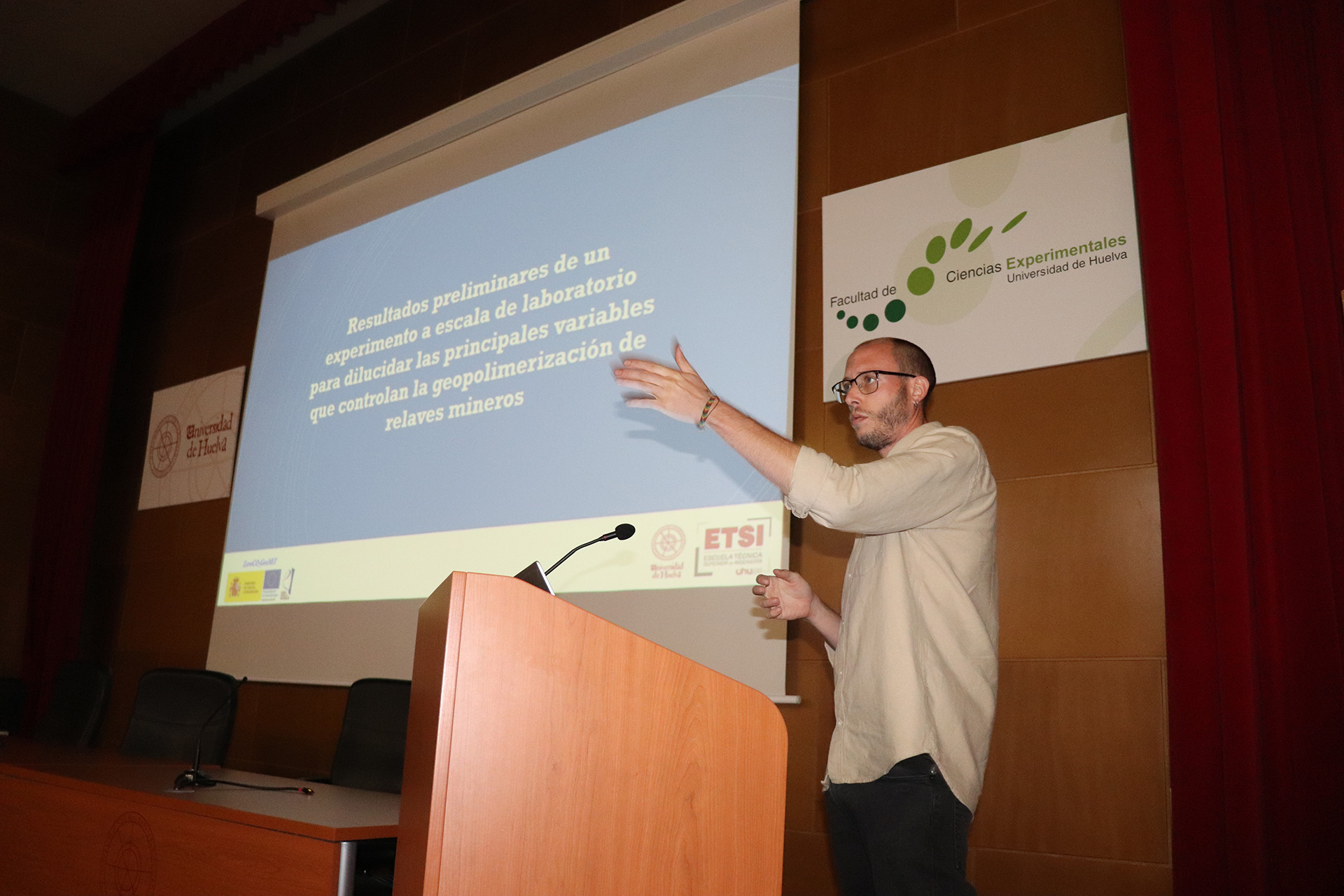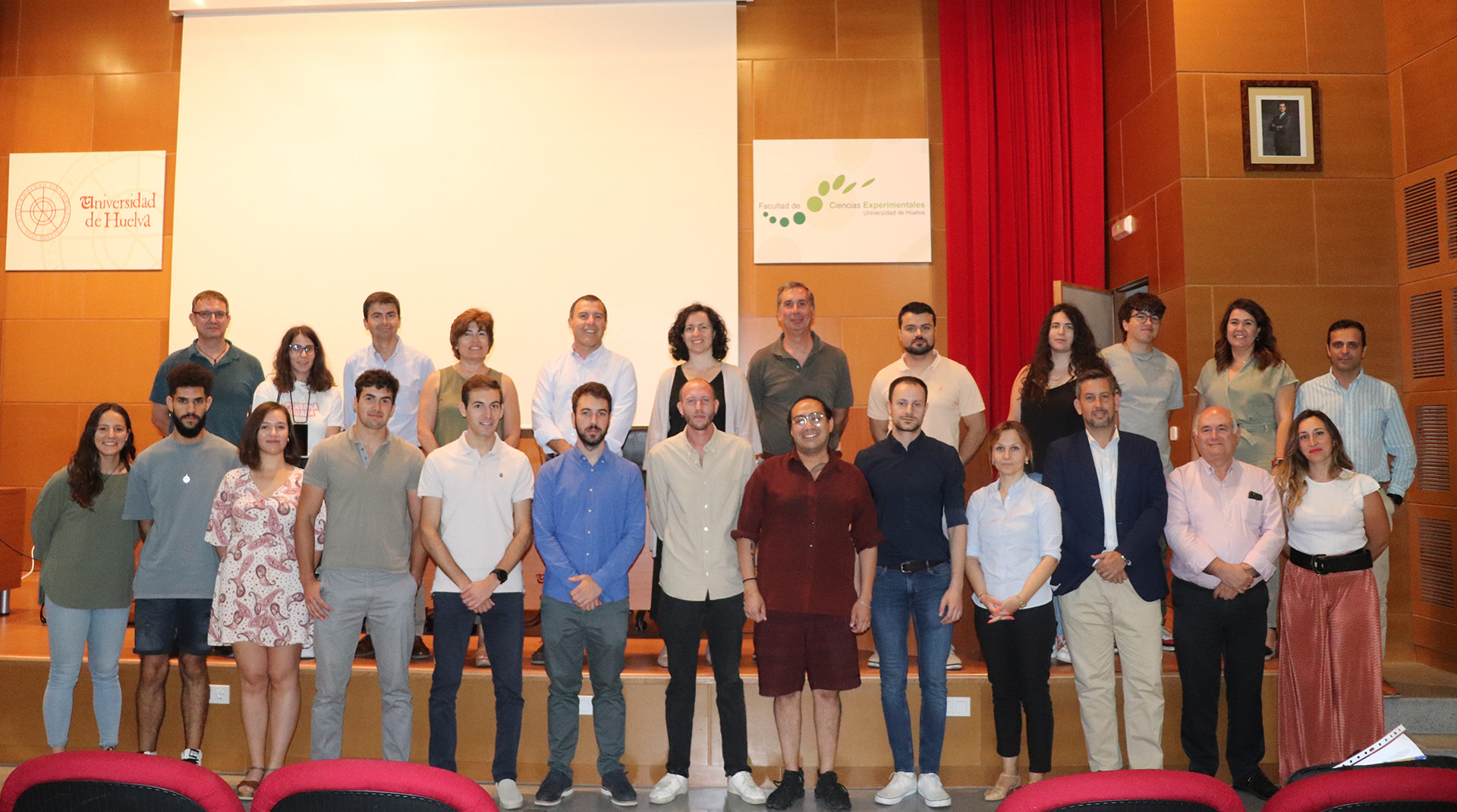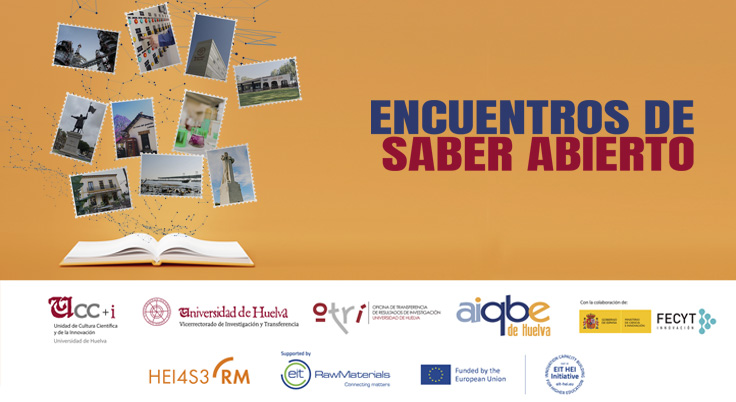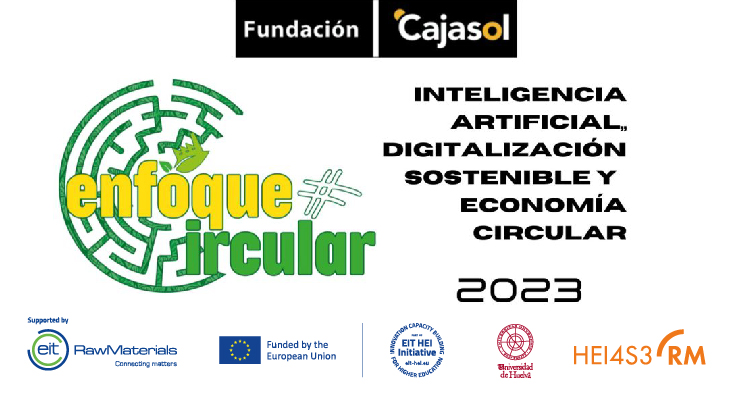Talent lab: Consumo responsable y eficiente de los recursos naturales y economía circular
Información Talent-lab
Talent-lab informationLa jornada de constitución de este Talent Lab ha sido dirigida por Reyes Sánchez Herrera, directora de la Oficina de Transferencia de Resultados de Investigación (OTRI), y Miguel Carvajal Zaera, Director de Proyectos, como coordinadores en la UHU del proyecto HEI4S3-RM.
The act of constitution of this Talent Lab has been chaired by Reyes Sánchez Herrera, director of the Office of Transfer of Research Results (OTRI), and by Miguel Carvajal Zaera, in charge of Research Project, as coordinators at the UHU of the HEI4S3-RM project.
La jornada contó con dos bloques. El primero de ellos sirvió para dar a conocer nueve trabajos de estudiantes de TFG (Trabajos de Fin de Grado) y TFM (Trabajos de Final de Máster) sobre materias relacionadas con los objetivos del proyecto europeo, además de una presentación del proyecto European Universities Designing the Horizons of Sustainibility, a cargo de Teresa Aceytuno y Claudia Roman, que se enmarca en la iniciativa comunitaria Sustainable Horizons, en la que participa la Onubense.
The meeting was split into two parts. During the first part, nine students presented their results of their Degree and Master Theses, on subjects related to the objectives of the European project, as well as a presentation of the project “European Universities Designing the Horizons of Sustainability” carried out by Teresa Aceytuno and Claudia Roman, which is part of the Sustainable Horizons community initiative, in which the University of Huelva participates.
Los trabajos expuestos (procedentes sobre todo de la Facultad de Ciencias Experimentales y la Escuela Técnica Superior de Ingeniería (ETSI), así como de centros y grupos de investigación) fueron los siguientes:
The works presented (mainly from the Faculty of Experimental Sciences and Engineering School, as well as from the research centers and groups) were the following:
- Modelización hidrogeoquímica de una red fluvial afectada por drenaje ácido de mina (cuenca del río Odiel): situación actual y repercusión de posibles actuaciones de remediación / Hydrogeochemical modeling of a river network affected by acid mine drainage (Odiel River basin): current situation and impact of possible remediation actions (Jonatan Romero);
- Diseño e implementación de una plataforma de cargas gestionables para el ensayo de su control / Design and implementation of a load platform manageable for testing its control(Gabriel Gómez);
- RPAS de ala fija impulsado por hidrógeno / Hydrogen-powered fixed-wing RPAS (Cirilo Delgado);
- Movilidad y contribución contaminantes a los océanos a través de un estuario afectado por drenaje ácido de mina. La Ría de Huelva / Mobility and contribution of contaminants to the oceans through an estuary affected by acid mine drainage. The “Ría de Huelva” (Laura Sánchez);
- Mineralogía y geoquímica del perfil de precipitación en una planta de tratamiento mina / Mineralogy and geochemistry of the precipitation profile in a mine-drainage treatment (Ainara R. García);
- Biolubricantes inteligentes con capacidad electro-reológica a partir de aceites vegetales y nanopartículas / (Samuel D. Fernández);
- Implementación de un nuevo controlador para una pila de combustible / Implementation of a new controller for a fuel cell (Daniel Suárez);
- Desde el Análisis de Ciclo de Vida (ACV) hacia un nuevo modelo verde de negocio, integrando la revalorización y reuso de residuos mineros / From Life Cycle Analysis (LCA) towards a new green business model, integrating the revaluation and reuse of mining waste(Martín Valenzuela);
- Resultados preliminares de un experimento a escala de laboratorio para dilucidar las principales variables que controlan la geopolimerización de relaves mineros / Preliminary results of a laboratory-scale experiment to elucidate the main variables that control the geopolymerization of mine tailings (Antonio Jesús Diosdado).
El segundo bloque consistió de una mesa redonda en la que participaron los ponentes: Rafael Romero, como miembro del Consejo Andaluz del Agua y gerente de Aiqbe; José Raúl Tejero, como responsable de Desarrollo de Negocios de Gabitel Ingenieros y en representación de la Cátedra Gabitel sobre el Hidrógeno de la UHU; Alonso Salguero, CEO de GTA Ingeniería y Medio Ambiente; Macarena Gómez, técnico de Medio Ambiente en Minas de Aguas Teñidas SA (Matsa), así como representante de AMINER; y los profesores de la Onubense Francisco José Vivas y Manuel Jesús Díaz Blanco. Los estudiantes tuvieron la oportunidad de compartir sus conocimientos y de preguntar sobre temáticas vinculadas al Talent Lab a los protagonistas de la mesa redonda.
The second part of the meeting consisted of a round table, in which took part as speakers: Rafael Romero, as member of the Andalusian Water Council and manager of Aiqbe; José Raúl Tejero, as head of Business Development at Gabitel Ingenieros and representing the Gabitel Chair on Hydrogen at the UHU; Alonso Salguero, CEO of GTA Engineering and Environment; Macarena Gómez, Environmental technician at Minas de Aguas Teñidas SA (Matsa), as well as representative of AMINER; and the professors of the Onubense Francisco José Vivas and Manuel Jesús Díaz Blanco. The students had the opportunity to share their knowledge and ask the speakers of the round table about topics related to the Talent Lab.
En la misma, los ponentes destacaron la necesidad de establecer las sinergias necesarias, más que nunca en el contexto actual, en materia de sostenibilidad, y además pusieron de relieve las oportunidades que brindan el emprendimiento verde, los avances científico-técnicos que contribuyen a la gestión responsable de recursos, al tratamiento de aguas afectadas por la actividad minera, a la eficiencia energética y a la gestión sostenible de las materias primas, en especial las críticas. Las materias primas críticas – aquí se incluyen las tierras raras ligeras – están identificadas por la Comisión Europea como aquellas que requieren una atención especial, debido a su importancia económico-tecnológica, y también debido al alto riesgo que supondría una interrupción de su suministro para la UE.
The speakers highlighted the need to establish the necessary synergies, more than ever in the current context, in terms of sustainability, and also emphasized the opportunities offered by the green entrepreneurship, the scientific-technical advances that contribute to the responsible management of resources, the treatment of water affected by mining activity, energy efficiency and the sustainable management of raw materials, especially critical ones. Critical raw materials – this includes light rare earths – are identified by the European Commission as those that require special attention, due to their economic-technological importance, and also due to the high risk that an interruption of their supply would entail for the EU.
Enlaces de prensa
Media links- La Universidad de Huelva crea un 'Talent-Lab' sobre economía circular con una decena de estudiantes. Fuente: Huelva Información.
- La UHU lleva a cabo un Talent Lab sobre eficiencia, recursos naturales y economía circular contando con TFG y TFM de alumnos. Fuente: Huelva Hoy.
- La Universidad de Huelva pone en valor un 'talent lab' sobre eficiencia, recursos naturales y economía circular. Fuente: Europa Press
- La UHU pone en marcha un ‘Talent Lab’ sobre eficiencia, recursos naturales y economía circular. Fuente: HEconomía.
- La UHU pone en valor el Talent Lab sobre economía circular. Fuente: Huelva Buenas Noticias.
